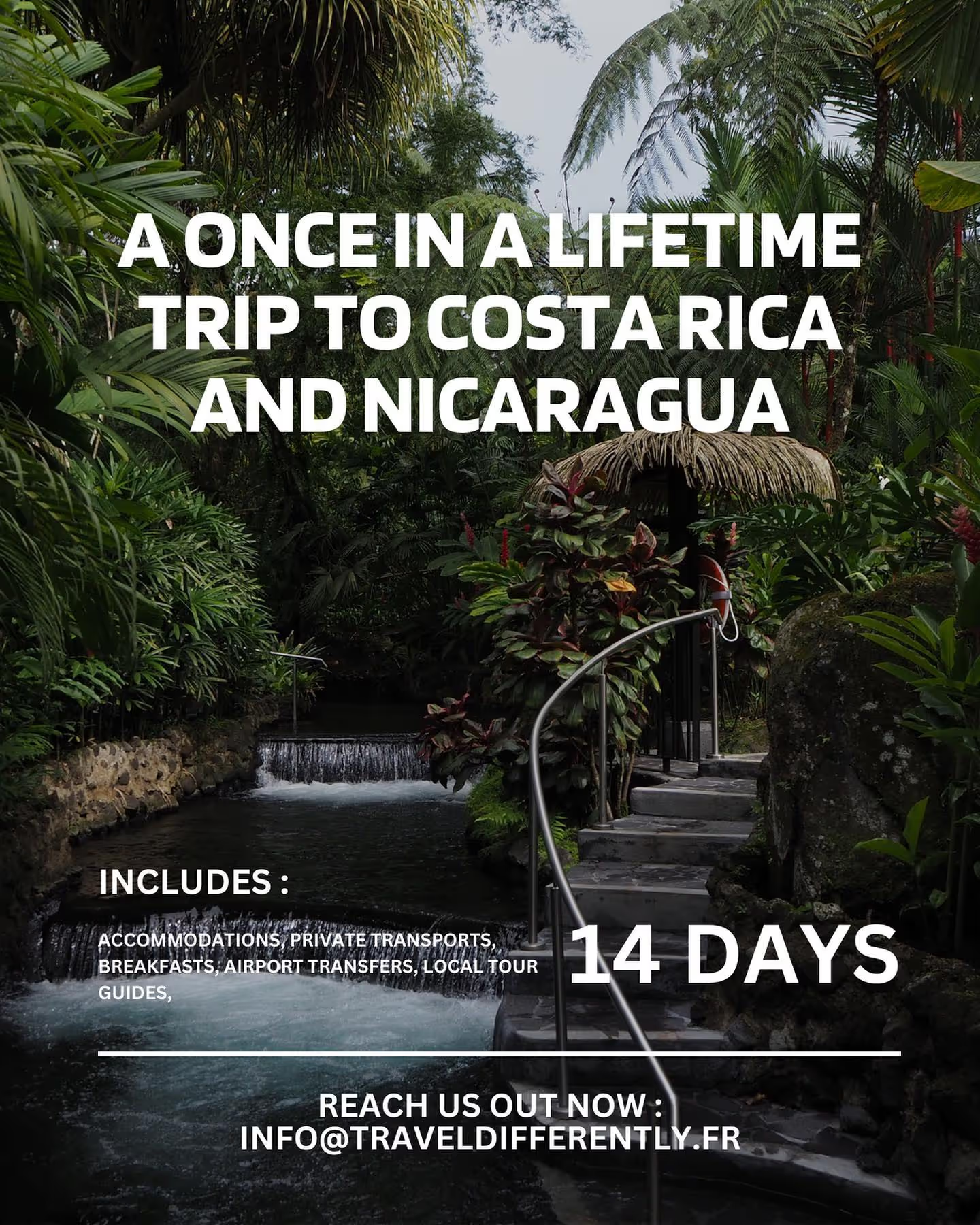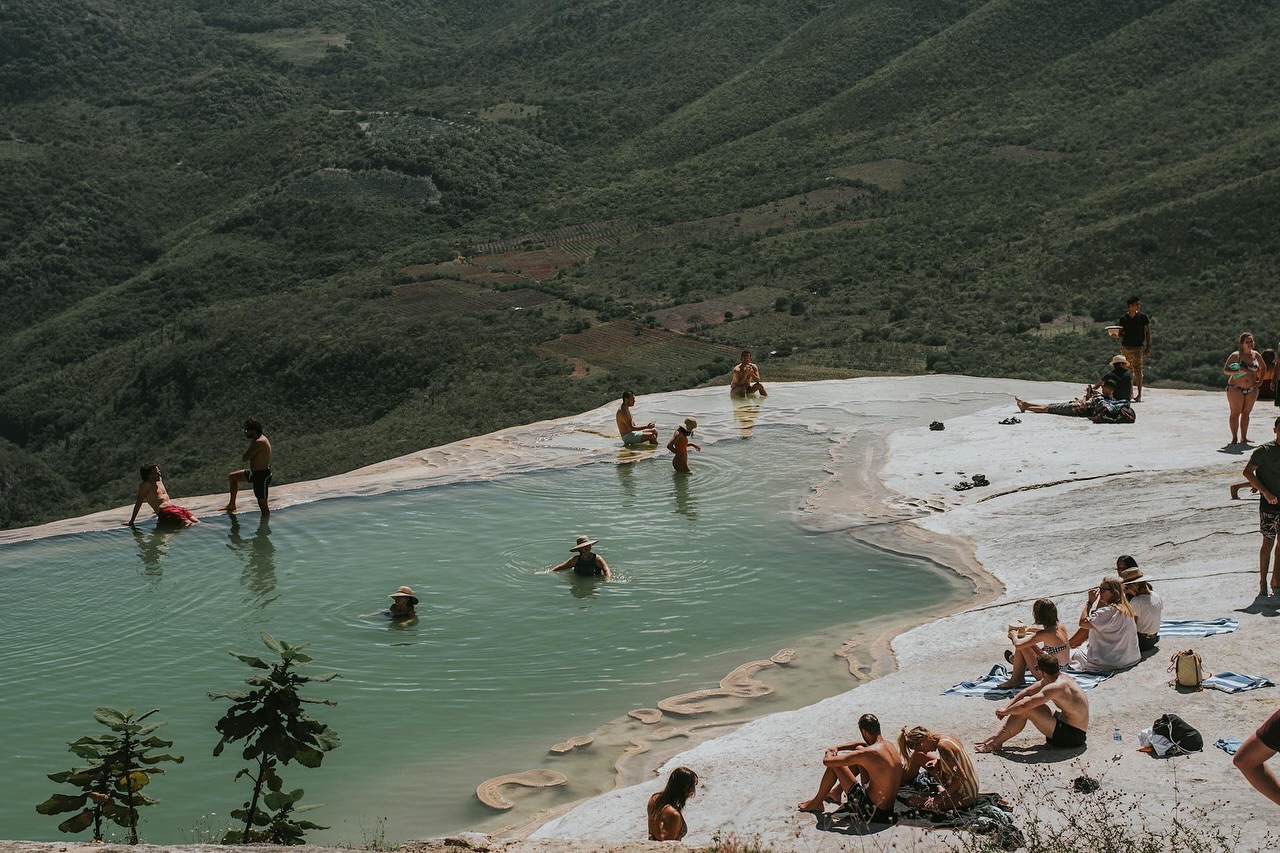We’ve become a global world and traveling has never been this easier or at least before the pandemic… Every year, people travel far from home mainly to popular destinations that now suffer from the effects of mass tourism.
Perhaps with the pandemic, people will look for more sustainable ways to travel in order to reform the tourism industry.
We know the alternative to mass tourism is now, ecotourism, but what is it ? And why should we care about ecotourism ?
1. What is exactly ‘’ecotourism‘’ ?
Let’s take 3 minutes to understand “why should we care about ecotourism ?” and “what are the benefits of it ?”.
Simply put, ecotourism is defined as : ‘’Responsible travel to natural areas that conserves the environment, sustains the well-being of the local people, and involves interpretation and education ‘’.
It is a low impact form of travel that preserves the natural world and protects its biodiversity and local communities. The ecotourism destinations are usually fragile and fairly preserved.
Ecotourism destinations are often remarkably preserved and fragile natural environments that demand responsible human intervention. Some excellent examples of ecotourism destinations can be found in our 3 Days in Peru and 5 Days of Adventure and Ecotourism in Mexico experiences.
%2520(1)%2520(2).avif)
2. Now you may wonder : why should we care about ecotourism ?
Because it really helps preserve some of the most beautiful environments on Earth on a much deeper level than what we all already know.
You can contribute to local communities and educate yourself so the more knowledge we have about the world, the better we can protect for future generations.
Do you know that ecotourism is different from sustainable tourism, we often have trouble making the distinction! That's why we prefer to explain it to you!
%2520(1).avif)
3. Ecotourism vs. Sustainable tourism
Ecotourism has many environmental, cultural and economic benefits for residents. But ecotourism should not be confused with nature tourism, which is only travel to natural attractions. For example, in nature tourism, a tourist may go bird watching in a scenic area, but an ecotourist will go bird watching with a local guide and stay in an Ecolodge run by local people, thus contributing to the local economy.
Focus:
- Ecotourism: ecotourism focuses on ecological conservation and educating tourists about the local environment and surrounding nature
- Sustainable Tourism: Sustainable tourism attempts to reduce the negative impacts of the tourism sector on the environment and local communities.
Destination:
- Ecotourism: Ecotourism encompasses different types of destinations such as wilderness, urban centers, and other places of cultural value.
- Sustainable Tourism: Sustainable tourism often includes destinations that have unique natural features, usually rural and wilderness areas.
Types:
- Ecotourism: Ecotourism is a type of tourism.
- Sustainable Tourism: The concept of sustainability can be applied to any form of tourism.
4. How does ecotourism work ?
Ecotourism can have a positive impact on our environment if it adheres to the following criteria:
- Minimizes the negative impact of tourism on the environment.
- Educates tourists about environmental protection through nature education.
- Provides additional income for local communities, promoting local appreciation and protection for the environment.
- Contributes part of the tourism sector's financial resources to nature conservation measures.
One of our authentic travel experiences, the Cloud Forest, fully embraces these ecotourism principles.

5. What are the benefits of ecotourism holidays ?

Ecotourism has a wealth of benefits, including:
- Educating travelers – Ecotourism raises awareness about the environment and encourages responsible action through informed decisions.
- Supporting local communities – Choosing ecotourism means contributing to local economies rather than multinational corporations.
- Promoting deeper travel experiences – Ecotourism allows you to immerse yourself in natural beauty, improving mental health and broadening your perspective.
In addition to these benefits, our Galapagos Family Adventure Holiday provides an unforgettable and responsible experience for the entire family.
Moreover, air passengers can offset the emissions of their flight, this is what we are doing with our "1 traveler, 2 trees" program. Our commitment is simple, every time a traveler books a trip, we minimize their carbon footprint by planting 2 trees. This is one of the actions we are implementing to offer a more conscious travel towards the planet and its populations ! Our goal is to minimize the social and environmental impacts of tourism.
However, ecotourism in its ideal form can only work if social aspects are taken into account in addition to ecological ones. Only when the benefits of tourism remain in the region, the economic incentive to protect the precious nature is there.
Here are the main ones :
A. Educates travelers
As we already mentioned, ecotourism raises awareness of the treats to the environment, but it also allows people to get informed and make even small changes to make a real difference. It all starts from Knowledge.
B. Support local communities.
Ecotourism is focusing on giving back to local markets, companies and communities rather than large multinationals. When you choose ecotourism, you contribute to the livelihoods of the local communities.
C. Live a deeper travel experience.
Ecotourism gives you the chance to really stop and look around you and appreciate its natural beauty. It is not only about the environment, it’s about you because it educates you, improves your mental health and makes you more open-minded.
Studies have shown that exposure to natural environments helps to improve our psychological health and makes us feel good.
D. Isn’t it better to just not travel ?
Yes and no. In fact, we can’t stop travelling to other countries because we are now too curious to discover other cultures, other communities and it takes a lot of courage to just stay in one country just to not emit greenhouse gases. It is all about finding a balance which is exactly what ecotourism does.
By choosing ecotourism, you’re avoiding mass tourism in favor of an experience that gives back to the planet and to local communities.
6. Where to Go for a Memorable Ecotourism Experience?
Ecotourism has gained popularity in recent years as more travelers seek sustainable and responsible ways to explore the natural beauty of our planet. Here are some notable ecotourism destinations across the globe:
- Costa Rica: Costa Rica, often featured in discussions about authentic travel, is a well-known ecotourism destination. Its tropical landscape boasts rainforests, cloud forests, countless beaches, volcanoes, and mountains. Visitors can explore the unique wildlife of Costa Rica, soak in the local "pura vida" lifestyle, and even embark on a once in a lifetime trip to Costa Rica & Nicaragua for a truly immersive experience.
- Kenya: As an excellent ecotourism example in Africa, Kenya’s government established "Ecotourism Kenya" to promote sustainable tourism that conserves the country's natural environment and improves the lives of local communities.
- Galapagos Islands: As a UNESCO World Heritage Site and a popular ecotourism destination, the Galapagos Islands, Galapagos family adventure holiday can provide a unique encounter with the islands' wildlife including giant tortoises, marine iguanas, and blue-footed boobies.
- Norway: Known for its breathtaking fjords, glaciers, and mountains, Norway also demonstrates a strong commitment to sustainability and eco-friendly practices, making it a top choice for eco-conscious travelers.
- Iceland: A great destination for ecotourism, Iceland offers geothermal pools, glaciers, and waterfalls for its visitors. Its commitment to sustainable tourism and eco-friendly practices is well known and applauded.
- Amazon Rainforest: As the largest rainforest globally, the Amazon is a key ecotourism destination. Ecotourism here not only helps educate people about the global importance of this enormous rainforest but also generates essential income for local communities. For an immersive experience, consider ecotourism in Brazil: 5 days in the Amazon rainforest.
- Bhutan: A small country in the Himalayas, Bhutan prioritizes sustainability and eco-friendly practices through its unique "Gross National Happiness" policy.
- Palau: This small island nation in the Pacific has stringent regulations to protect its marine environment, including creating the world's first shark sanctuary. Their commitment to sustainability makes Palau a prime ecotourism spot.
7. Choosing the Right Ecotourism Operator: A Guide to Sustainable Travel
Choosing a responsible ecotourism operator is crucial for ensuring that your tourism activities have a minimal impact on the environment and positively contribute to local communities. Here's how you can make a more informed decision:
- Check for Certifications and Accreditations: Look for seals of approval from organizations like the Global Sustainable Tourism Council (GSTC) or the Rainforest Alliance that indicate the operator follows responsible and sustainable practices.
- Read Reviews: Take the time to read reviews and testimonials from previous customers. They can offer insights into whether the operator truly practices sustainable tourism.
- Research Operator Policies: Learn about the operator's policies and practices related to environmental conservation, community involvement, and cultural preservation. Good operators will have these policies clearly stated.
- Operator's Conservation Involvement: Another thing to consider is whether the operator is involved in local conservation and community development projects. A responsible operator should be making a positive impact on the destinations they operate in. Ecotourism in Mexico: The Authentic Side of Riviera Maya is an example of an operator who contributes to the preservation of the destination.
- Hire and Train Local Guides: Operators that hire and train local guides and staff not only provide employment opportunities in local communities but also provide tourists with authentic cultural experiences. In Peru's Must-Sees In a Flash, local guides offer in-depth insight into Peru's culture and heritage.
- Environmental Impact: Another important factor is the operator's commitment to minimizing their environmental impact. Look for operators that use renewable energy sources or have implemented waste reduction programs, like the Luxury Eco Lodge in Ecuador, which is nestled deep in the rainforest and operates on sustainable practices.
- Overall Commitment: Consider the operator's overall commitment to responsible tourism beyond just their ecotourism offerings. You should assess their sustainability practices and policies as a whole. Highlights of Ecuador & Colombia Tour shows how a tour can be thrilling and responsible at the same time.
- Ask Questions: Finally, don't hesitate to ask the operator questions about their practices and policies, such as how they ensure the well-being of local communities and the environment. The more transparent they are about their operations, the more confidence you can have in them as a responsible ecotourism operator.
By taking the time to do this research, you can ensure that you are supporting operators who are making a real difference in the world. Responsible tourism is a powerful tool for positive change, and every decision you make can help to support this. For more tips on how to be a more responsible tourist, check out 9 Steps to Being a More Sustainable Traveler.

6. To conclude
Tourism can be both a blessing and a curse for desirable travel destinations. On the one hand, the lucrative industry creates jobs and opportunities for people, on the other hand, it also has negative consequences that often overwhelm locals: cultural intolerance, burgeoning competition among the population, garbage and noise.
"Tourism destroys what it seeks by finding it." (Hans Magnus Enzensberger)
So-called ecotourism should represent a limited, sensitive and sustainable alternative to mass tourism. But ecotourism is interpreted very differently. Proximity to nature is at the forefront of this form of tourism, but the ecologically sustainable management of it varies considerably in practice. For many providers, the demands of the tourists come first, so that the protection of nature and animals is too often subordinated to the needs of the tourists. In general, the critical demand for sustainability and environmental protection is very important here in order to establish an increasingly green strategy among providers. In this context, some tourism providers are often accused of label fraud and greenwashing.
Of course, limited and exclusive tourism in a private accommodation run by a local family business is more in line with the understanding of ecotourism than the international five-star hotel complex. Nevertheless, it is important that the aspect of sustainability jumps to all forms of tourism, whether in the big city or in natural areas, so that, among other things, the critical demands of tourists will prompt suppliers to do more than just switch to energy saving lamps. For exclusive ecotourism in areas close to nature, this usually means keeping the tourism footprint as small as possible.
Now, you know why should we care about ecotourism and what are the benefits for a better travel industry ! 👏😍 But are you aware of the 6 sustainable travel myths ? 🤔
{{component-create-my-trip="/"}}






.avif)

.avif)














Log in ou Sign up to join the discussion.
Join the discussion
0 comments